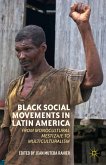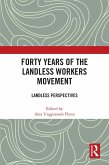Since independence from Spain, a trope has remained pervasive in Latin AmericaGCOs republican imaginary: that of an endless antagonism pitting civilization against barbarism as irreconcilable poles within which a nationGCOs life unfolds. This book apprehends that trope not just as the phantasmatic projection of postcolonial elites fearful of the popular sectors but also as a symptom of a stubborn historical predicament: the cyclical insistence with which the subaltern populations menacingly return to the nationGCOs public spaces in the form of crowds.Focused on Venezuela but relevant to the rest of Latin America, and drawing on a rich theoretical literature including authors like Derrida, Foucault, Lacoue-Labarthe, Nancy, Lyotard, Laclau, Taussig, and others, Dancing Jacobins is a genealogical investigation of the intrinsically populist Gmonumental governmentalityG that in response to this predicament began to take shape in that nation at the time of independence. Informed by a Bolivarian political theology, the nationGs representatives, or Gdancing Jacobins,G recursively draw on the repertoire of busts, portraits, and equestrian statues of national heroes scattered across Venezuela in a montage of monuments and dancingGor universal and particular. They monumentalize themselves on the stage of the polity as a ponderously statuesque yet occasionally riotous reflection of the nationGs general will.To this day, the nervous oscillation between crowds and peoplehood intrinsic to this form of government has inflected the republicGs institutions and constructs, from the sovereign GpeopleG to the nationGs heroic imaginary, its constitutional texts, representative figures, parliamentary structures, and, not least, its army. Through this movement of collection and dispersion, these institutions are at all times haunted and imbued from within by the crowds they otherwise set out to mold, enframe, and address.
Dieser Download kann aus rechtlichen Gründen nur mit Rechnungsadresse in A, B, BG, CY, CZ, D, DK, EW, E, FIN, F, GR, HR, H, IRL, I, LT, L, LR, M, NL, PL, P, R, S, SLO, SK ausgeliefert werden.









